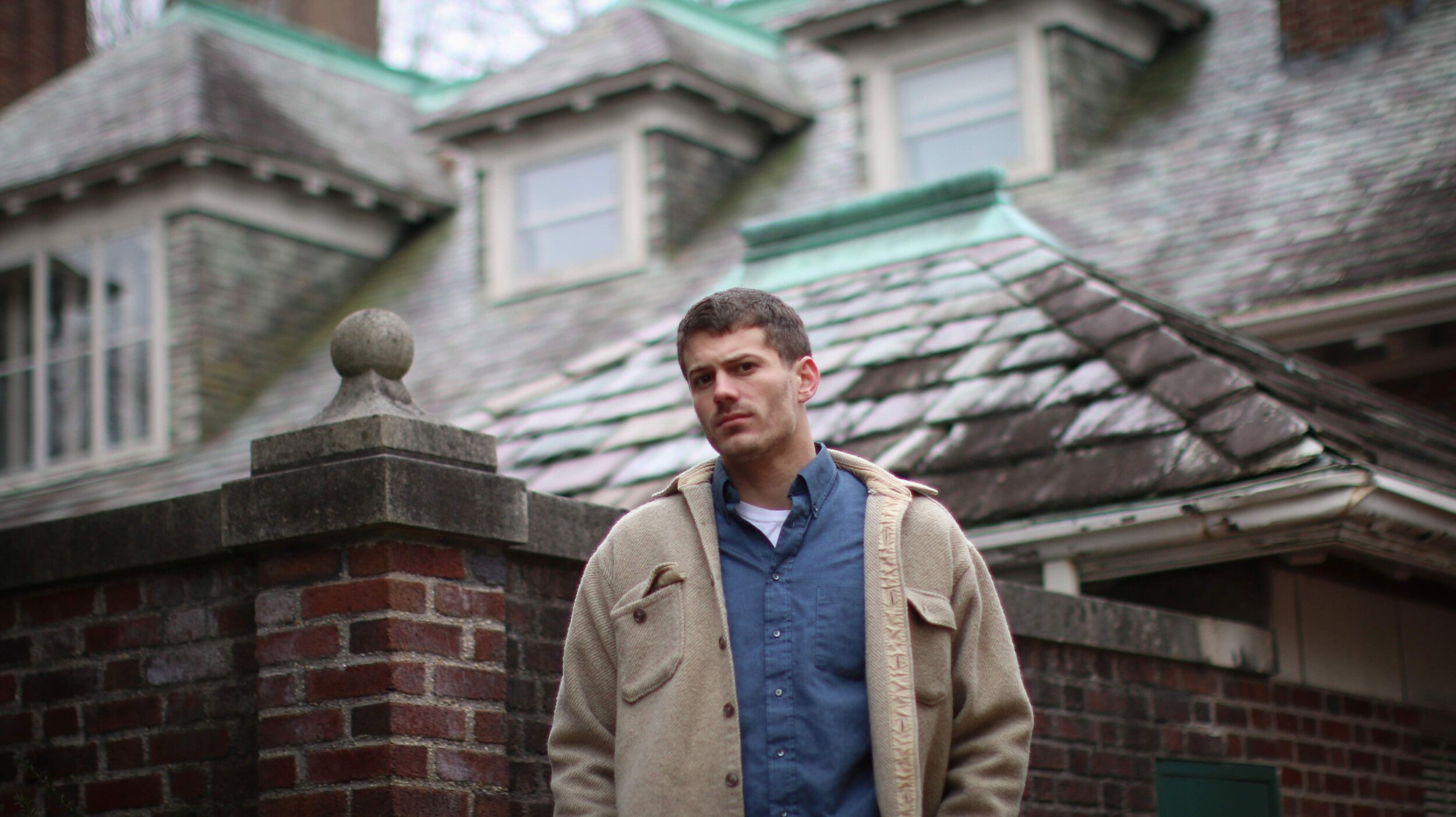Obviously Peter Oren couldn’t have known he’d be releasing his new album “The Greener Pasture” into a world upended by a global pandemic. Yet Oren’s latest is intertwined with current events as he confronts a question that couldn’t be more timely amid stay-at-home orders and quarantines: how we use screens, especially on mobile phones.
“The Greener Pasture” is a meditation on technology and its hold over us. On a dozen songs, the Indiana singer and songwriter explores the idea that having more information than ever before literally at our fingertips isn’t making us freer or happier, or even better informed. On the contrary, we are trapped within what he calls “a false sense of connectedness.” He’s not the first musician to write about that concept: singer-songwriter EMA explored themes of surveillance and online privacy on her 2014 album “The Future’s Void,” for example, and the rapper Tim Fite skewered our reliance on technology on “iBeenHACKED,” his 2014 album and visual art project.
"These objects, this way of living, this online thing, it’s taking over our bodies,” Fite told me at the time for a story in The Wall Street Journal.
Oren wouldn’t disagree, though his take is less gleefully satirical than regretful and foreboding, an impression reinforced by his deep, resonant voice and the spare musical arrangements on “The Greener Pasture.” He’s not solely focused on phones. The dusty, western-sounding “John Wayne,” for example, is a study of the archetypes of American individualism. Over pedal steel guitar and brushed drums in waltz time, Oren notes how the Hollywood heroes that symbolize self-reliance — upstanding citizen crime-fighters like John Wayne and Bruce Wayne among them — rarely stop to consider why there’s so much crime to fight. “Always looking down at poverty like it’s a novelty,” Oren murmurs.
Elsewhere, “Stud Song” examines similar themes in the context of a national perspective on wealth that regards success as a deserved outcome of individual effort, and poverty or weakness as a moral failing. Oren disputes that idea, using the metaphor of a bull chosen for breeding as a result of heritable characteristics. “In the same way, the advantages of wealth are passed down within a family through capital,” he writes in the press notes. If that sounds dry on the page, it’s lively in song. Oren harmonizes with himself on the refrain as he sings from the bull’s perspective, delivering an acerbic, if deadpan, indictment of the dim sense of entitlement that so often accompanies lucky landings. As the Texas politician and commentator Jim Hightower once said about about George H. W. Bush, “He is a man who was born on third base and thinks he hit a triple.”
The crux of Oren’s argument, and the centerpiece of the album, is “The Whole World,” an interpolation of the traditional African American spiritual “He’s Got the Whole World in His Hands.” Oren sticks close to the familiar melody on the chorus, and adds verses that are rather less comforting about the ubiquity of screens and what we’re trading for the addicting convenience of “memes and videos of dogs doing human things” — namely, a startlingly complete picture of our habits, predilections and associates that companies monetize by selling to advertisers. Oren sings in sorrowful, sonorous tones as the song builds around him, starting with an electric guitar plugged into an amp turned up loud enough for the sound to crumble around the edges, followed by bright, blurry piano chords and a heavy, uncluttered drum beat. By the end, the song has become a kind of sound bath that seeps into your bones, a counterpoint to Oren’s disaffected lyrics.
If phones and screens represented a questionable trade-off in the Before Times, what about now? When we’re told it can be dangerous to see each other in person, we’re relying more than ever on our devices for work, socialization and recreation. Do our screens help bridge the isolation gap that staying at home has made so prominent?
“For me, the question about tech in a pandemic is a question of who can comfortably ride out a pandemic from their living rooms and enjoy all the conference calls and TikToks,” Oren says by email. “Does technology bring us together or apart? Neither, it just shows us what we already are. We are apart.”
He continues, “We are apart when some tremble in fear [for] their livelihoods and eviction while the wealthy escape to coastal enclaves with private doctors. We are apart when free services steer our behavior in order to maintain our attention, building echo chambers and bubbles. We are apart when some people are non-essential costs getting in the way of someone else’s black bottom line. Streaming media is a wonderful thing that doesn’t work for everyone involved.”
Or, as Oren puts it on the title track, “The greener pasture is also fenced in,” so even when the bull from “Stud Song” moves to a new farm, he’s no freer than he was before. A couple lines later, Oren hammers it home: “We got their tags on our ears/ Standing in shit crying bovine tears.” That’s not a particularly hopeful outlook, but he’s not wrong.
